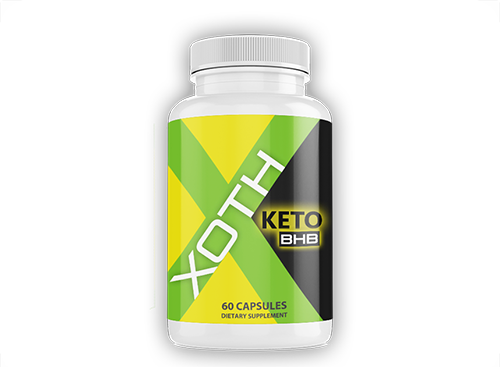
One of the main reasons I started Keto was to get off all the medications I was taking. The only supplement I use regularly is a Vitamin D & magnesium mix, because I do not get out into the sun often enough, and it has been found that magnesium is required for the body to convert vitamin D3 into a form the body can use.
Owen Walcher
My Blog posts on Keto Supplements:
Many people on a ketogenic diet choose to take supplements to help address potential nutrient deficiencies or support their overall health and well-being. The specific supplements you might need can vary depending on your individual health and dietary choices, but some of the most commonly used supplements on a keto diet include:
When I do supplement, I only take specific versions of what is offered. If there are links from any listed here, it is to the specific product I use from amazon dot com.
Owen Walcher
- Electrolytes: One of the primary reasons people take electrolyte supplements is to address potential imbalances when transitioning into ketosis. On a keto diet, your body excretes more sodium, potassium, and magnesium. Supplementing with these electrolytes can help prevent symptoms like muscle cramps, fatigue, and headaches.
- Omega-3 Fatty Acids: Omega-3 supplements, often sourced from fish oil or algae, can help maintain a healthy balance of essential fatty acids, as many keto diets can be high in omega-6 fats.
- MCT Oil: Medium-chain triglyceride (MCT) oil is a common supplement for those on a keto diet. It provides a quick source of energy, can enhance ketone production, and may help with mental clarity and focus.
- Fiber Supplements: Some people may take fiber supplements to help maintain regular bowel movements since keto diets are often lower in dietary fiber from fruits and grains. Psyllium husk and other soluble fiber sources are common choices.
- Probiotics: These supplements can help maintain a healthy gut microbiome, which is essential for overall health and digestion. Some people on a keto diet may not consume enough fiber to support a healthy gut, making probiotics particularly important.
- Caffeine: For its appetite-suppressing and energy-boosting properties, some keto dieters may choose to supplement with caffeine, whether through coffee or caffeine pills.
- Collagen: Collagen supplements can support joint and skin health. They are often included in keto diets to promote skin elasticity and joint function.
- Exogenous Ketones: These supplements provide ketones from an external source, which can help increase ketone levels in the blood. They may be used for energy or to help get back into ketosis after a carb-heavy meal.
- Vitamins and Minerals: A well-rounded multivitamin can help fill in any nutrient gaps in your diet. Some keto dieters might also take extra vitamins like vitamin D, as they may not get enough through food sources, especially if they’re not consuming dairy.
Here are the specific vitamins you might want to consider:
- Vitamin D: Vitamin D is important for bone health, immune function, and overall well-being. Keto diets can sometimes be deficient in vitamin D because they often include fewer fortified dairy products and cereals. Vitamin D supplements can help maintain adequate levels.
- Vitamin B Complex: B vitamins, including B1 (thiamine), B2 (riboflavin), B3 (niacin), B6 (pyridoxine), B9 (folate), and B12 (cobalamin), play essential roles in energy metabolism, neurological function, and the formation of red blood cells. Since some keto foods like grains and legumes are restricted, supplementation may be necessary to ensure you get enough B vitamins.
- Magnesium: Magnesium is vital for muscle and nerve function, blood glucose regulation, and bone health. Ketogenic diets can lead to magnesium loss through urine, making supplementation important to prevent deficiency.
- Potassium: Maintaining proper potassium levels is crucial for heart and muscle function. A keto diet can lead to potassium loss due to increased urination, and supplementation can help prevent imbalances.
- Sodium: Sodium, like potassium, can be lost through increased urination on a keto diet. Adequate sodium intake is important to avoid symptoms like muscle cramps and fatigue.
- Calcium: While many dairy products are restricted on a keto diet, it’s essential to maintain healthy bone density and nerve function. Calcium supplementation may be necessary, or you can include non-dairy calcium sources like leafy greens and canned fish with bones.
- Iron: Iron is necessary for the transport of oxygen in the blood. Keto dieters may need to be cautious about getting enough heme iron (from animal sources) or consider iron supplementation, as non-heme iron (from plant sources) may be less readily absorbed.
- Zinc: Zinc is important for immune function, wound healing, and maintaining healthy skin. Some keto foods are rich in zinc (e.g., red meat), but supplementation may be necessary to meet daily needs.
- Selenium: Selenium is an essential mineral with antioxidant properties. Its content in foods can vary depending on soil quality, so supplementation might be considered for consistent intake.
- Copper: Copper is involved in various enzymatic reactions, and a deficiency can lead to anemia and other health issues. Since copper is often found in foods like whole grains and legumes restricted on a keto diet, supplementation may be necessary.
- Iodine: Iodine is essential for thyroid function and is commonly found in iodized table salt. However, keto diets sometimes restrict salt intake, which can lead to iodine deficiency.
- Chromium: Chromium plays a role in insulin sensitivity, which can be especially important for managing blood sugar levels on a keto diet. Some individuals may consider chromium supplementation to support their metabolic health.
It’s important to note that not everyone on a keto diet will require all of these supplements, and individual needs can vary widely. The best approach is to monitor your own health, consult with a healthcare professional, and tailor your supplement intake to address any specific deficiencies or challenges you encounter on your keto journey. Additionally, try to obtain as many nutrients as possible from whole foods in your diet to ensure you’re meeting your nutritional needs naturally.
Remember that individual needs can vary, and it’s essential to consult with a healthcare professional or a registered dietitian to determine your specific requirements. They can assess your diet, health status, and potential deficiencies to provide personalized recommendations for vitamin and mineral supplementation on a ketogenic diet.


